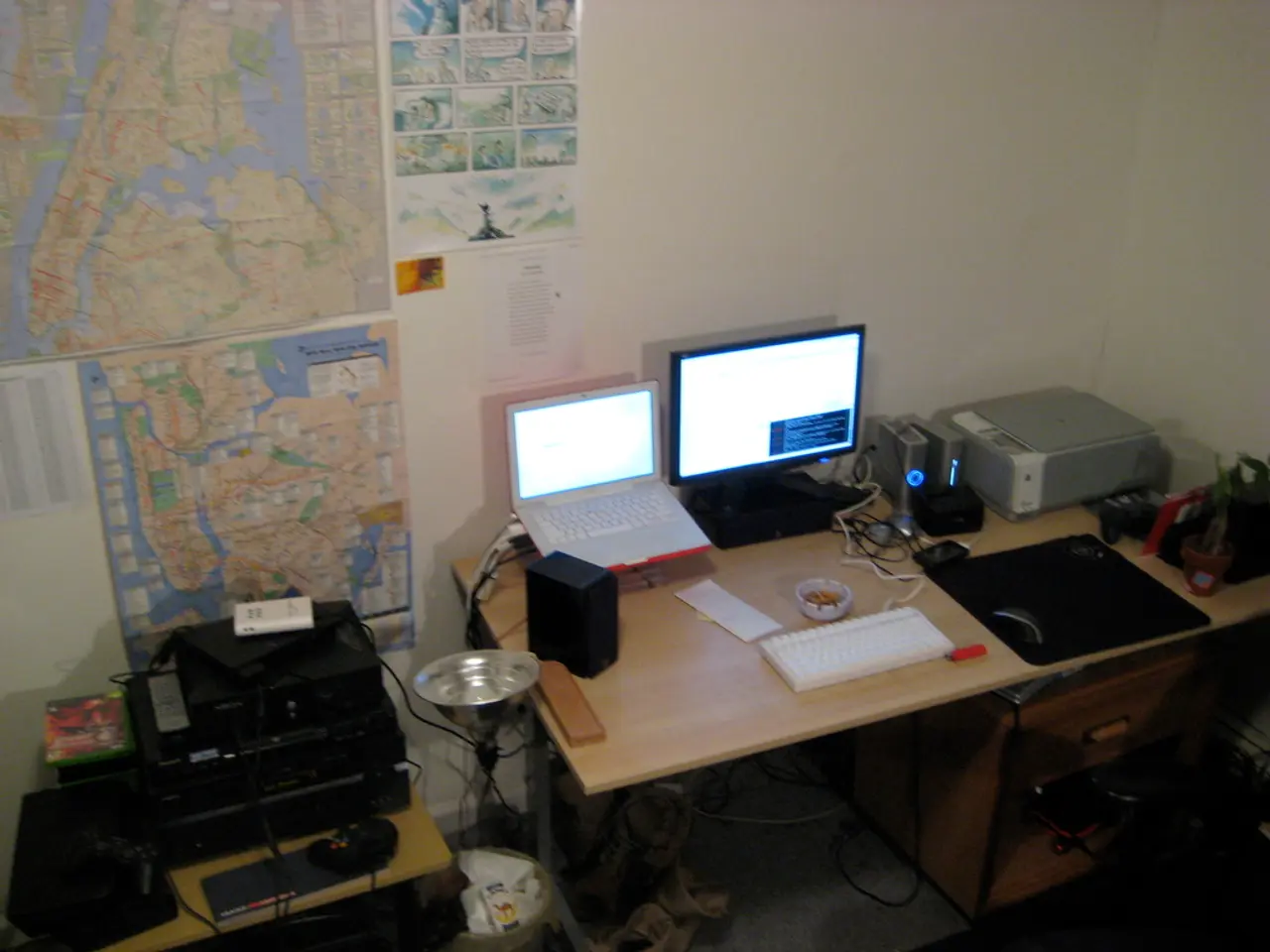Work-from-home workers, Starbucks decides to prohibit the use of desktops at their coffee shops
Starbucks Korea Cracks Down on Cafes-Turned-Offices
Starbucks Korea has taken a significant step to combat the transformation of its cafes into full-scale offices and study spaces. The move targets a group of customers known as "cagongjok," who work or study for hours in coffee shops, using bulky equipment that has led to complaints about space occupation, limited seating availability, and misuse of shared resources.
The new rules aim to prevent customers from turning the cafes into offices or study spaces. Starbucks Korea has banned the use of desktop computers, printers, power strips, and large partitions in their cafes. These items, which limit seating capacity and restrict shared space use, create an environment resembling an office rather than a casual coffee shop, and cause inconvenience by customers occupying multi-person tables alone or leaving belongings for extended periods.
Customers are still welcome to use laptops, tablets, and smaller personal devices, but excessive equipment that disrupts the communal cafe atmosphere is not allowed. Starbucks Korea's goal is to maintain its cafes as welcoming social spaces focused on coffee enjoyment and connection rather than isolated workstations.
The growth of coffee shops in South Korea is partly driven by their popularity as study and workspace. With the number of coffee shops nearly doubling from about 51,500 in 2015 to over 100,000 in 2024, it's no surprise that some customers have taken advantage of the available space. However, Starbucks Korea's new measures aim to strike a balance between providing a comfortable study environment and ensuring that the cafes remain accessible to all patrons.
Photos of elaborate setups by "cagongjok" customers have spread widely on Korean online forums, with some customers even bringing in partitions to turn tables into private booths. In some cases, printers were placed on nearby chairs, blocking others from using them. Long stays at coffee shops can be costly for owners, with a 4,100 won coffee covering only 1 hour and 42 minutes of seat time before it becomes unprofitable (as of 2019).
Starbucks Korea has posted new notices in every branch across the country, asking customers to take their belongings when leaving for long periods and to make room at shared tables so others can sit. The new signs also ask customers to avoid setting up large monitors, printers, and cubicle-style dividers, which disrupt the communal cafe atmosphere.
The new rules do not ban laptops or ordinary study sessions, but the goal is to prevent cafes from becoming full-scale offices. Starbucks Korea's decision to implement these rules is a step towards ensuring that its cafes remain welcoming social spaces for all customers, where coffee enjoyment and connection take centre stage.
[1] "Starbucks Korea bans desktop computers, printers, power strips, and large partitions in its cafes to prevent customers from turning the cafes into full-scale office or study spaces." [News Source]
[2] "Starbucks Korea aims to maintain its cafes as welcoming social spaces focused on coffee enjoyment and connection rather than isolated workstations." [News Source]
[3] "The growth of coffee shops in South Korea is partly driven by their popularity as study and workspace." [News Source]
[4] "Customers are still welcome to use laptops, tablets, and smaller personal devices, but excessive equipment that disrupts the communal cafe atmosphere is not allowed." [News Source]
[5] "Photos of elaborate setups by 'cagongjok' customers have spread widely on Korean online forums, with some customers even bringing in partitions to turn tables into private booths." [News Source]
- The new lifestyle in Korean coffee shops, where home-and-garden situations with large equipment and partitions are common among study and work customers, is being discouraged by Starbucks Korea with the ban on desktop computers, printers, power strips, and large partitions.
- Despite the crackdown on offices-turned-cafes, Starbucks Korea maintains a focus on its home-and-garden roots as welcoming social spaces for coffee enjoyment and connection, rather than for isolated workstations.




